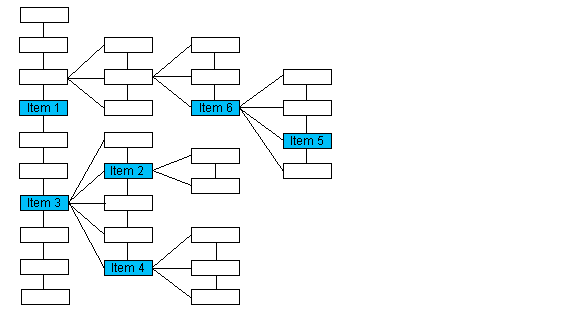| Visual Basic (Declaration) | |
|---|---|
Public Function GetParentElement( _ ByVal element As DicomElement _ ) As DicomElement | |
| Visual Basic (Usage) |  Copy Code Copy Code |
|---|---|
| |
| C# | |
|---|---|
public DicomElement GetParentElement( DicomElement element ) | |
| Managed Extensions for C++ | |
|---|---|
public: DicomElement* GetParentElement( DicomElement* element ) | |
| C++/CLI | |
|---|---|
public: DicomElement^ GetParentElement( DicomElement^ element ) | |
Parameters
- element
- An item in the Data Set.
Return Value
The item in the Data Set that is the parent of the item specified by element, or a null reference (Nothing in Visual Basic) if element has no parent (element is a Level 0 item).For an example, refer to Load.
The parent is the ancestor one level higher than the specified item. If the specified
item is a Level 0 item, this method will return a null reference (Nothing in Visual
Basic). Please note that the numbering of the items in the following illustration is
arbitrary and does not imply order.

| If the passed object points to: | The method returns an object pointing to: |
|---|---|
| Item 1 | null |
| Item 2 | Item 3 |
| Item 4 | Item 3 |
| Item 5 | Item 6 |
The following methods will also help you navigate the Data Set:
Target Platforms: Microsoft .NET Framework 2.0, Windows 98, Windows NT 4.0, Windows Millennium Edition, Windows 2000, Windows XP Home Edition, Windows XP Professional, Windows Server 2003 family




